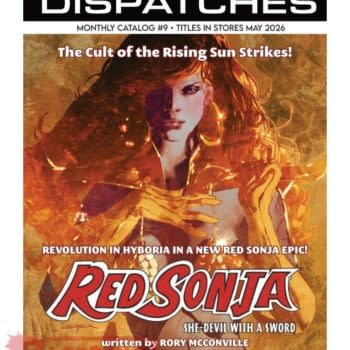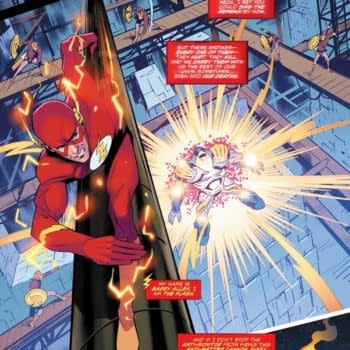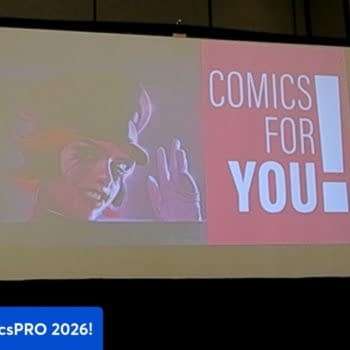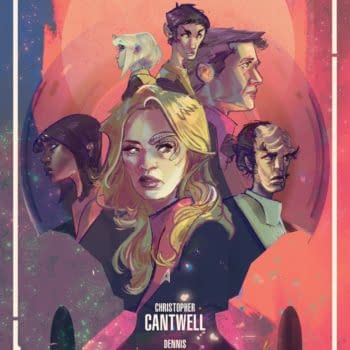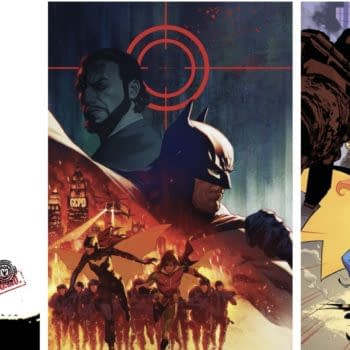Posted in: Comics, Recent Updates | Tagged: Angoulême, Anouk Ricard, Benson's Cuckoos, Comics, drawn & quarterly, entertainment, funny animals, Helge Dascher
Benson's Cuckoos From Drawn & Quarterly – Nothing's 'Safe' In This Funny Animal Office Book
Drawn & Quarterly are in the midst of release quite a few diverse graphic novels, all so different, in fact, that they remind us of how vast and all-encompassing the range of comic genres really are. One of the strangest is, by far, Benson's Cuckoos by Anouk Ricard.
Ricard rose to attention with her kids' series Anna and Froga in her native France with multiple Angouleme nominations and the French edition of Benson's Cuckoos has already taken a Special Jury Prize. This D&Q edition in English is translated by Helge Dascher and I'm judging it to have been a very careful translation because the book is riddled with very carefully balanced humor that works on brevity and contrast between points of dialogue. The fact that it works so well in English means particular dedication and wit from Dascher.
Benson's Cuckoos is the kind of book that makes you feel like you have to come up with new words and phrases to describe its conglomerate elements and do it justice, so here goes: it's a funny animal all grown up misleadingly dark and unpredictable boundary pushing book. Was that a grammatically correct sentence? I'm not sure. But that's a start. The cover, with its animal team of office mates staring blankly ahead in their primary and pastel hues automatically conveys a certain dryness that makes you smile, but the nuance in Ricard's disarmingly simple linework conveys little quirks of facial expression and posture that says as much as the actual dialogue in the book.
To start with, when you initially encounter the book, you will assume it's a rip off of the internationally known and watched TV series The Office, and probably a little closer to the American version than the British. There's a new office worker turning up, a slightly hang-dog and uncertain but likeable male blue duck who encounters a zany boss who is full of energy, has strange outbursts, bizzare ideas, and very fickle with his Hitlerian commands that seem to serve no purpose. And this is all taking place in the office of a manufacturing company, here for cuckoo clocks, which is of course a very good stand-in title for the loopiness of the place and its employees. Up through the first quarter or so of the graphic novel you will continue to think "Is it or isn't it?" derivative of The Office, especially when the boss pulls out a stereo, using music in meetings and seems to want to be seen as "cool" and "liked" by everyone. But in this book, with its already winning artwork, the bandaid is well and truly pulled off on anything as relatively "safe" as the albeit intentionally uncomfortable tropes of The Office.
The peeling off of that veneer starts off slowly when our new employee is placed in very stressful situations, like not being able to find the files he's supposed to report on or being told he'll be "fired" at the hands of the totally unpredictable boss (who's a fluffy-maned white dog in loud clothing) in a non-joking way, and he's virtually sexually assaulted by a workmate. This actually goes into territory a sitcom might well avoid because the stress-level isn't quite funny, while it is sympathetic.
But the next level of reveal is when we watch the boss saying quite cruel things and doing so, not out of ignorance that he's harming people, as in The Office, but just because he doesn't care. He's childish, imp-like and doesn't give a damn. He feels fully justified in his increasingly mad behavior. The workmates aren't much better–they are all cuckoo in their own way, from being a bit dim, to being willingly bullied, to being insulting and conspiratorial. Maybe I'm making this all sound a bit dark. It's a gift of the brief, quickly moving dialogue that keeps things strangely light even as these "cute animals" take on recognizable office rivalries and snappishness.
Finally, there's the underlying plot, which becomes the significant center of the narrative, and has nothing to do with your traditional office scene in any way: the disappearance of a former employee and the gradual pursuit of "what's really going on" behind the scenes at Benson's Cuckoos. Expect bondage, gunfire, even blood, and plenty of scary death potential, all depicted through these ambiguous dot-eyes of humdrum animal office workers. There's a long underground comix tradition of doing these kind of extreme things with animal characters to point out that an identification character is an identification character whether or not they are human and can create the same emotional reaction in the reader.
This dark treatment also countermands the "cuteness" of animal characters that many readers find cloying, and enables them to go into deeper plot-lines the more human their motives seem to be. Here we have a proxy for a real world, lit with a little bit of the playfulness of an animal world. This book uses the gap between expectations from funny animals and expectations from an office dramedy to get under your skin. It's a little brutal, but hits the funny bone at the same time. There brutality has a point to it–there's a certain truth in human behavior in each action and "type" of character we see at work in the narrative.
I should also credit Ricard with telling a fairly longform story without a single trace of lag. Every panel seems chosen for particular beat and affect–it's like having perfect pitch in music in terms of panel choice. The "mystery" element, the little side-elements like a possible romance, a possible firing, trying to keep up with the boss who seems to become increasingly unstable, slot in nicely between mystery reveals and an escalation in tension and possible violence.
My favorite panel in the book is actually a full-page spread depicting an office-distributed leaflet warning employees of what they should know before undertaking a treasure-hunt retreat that reveals absolutely no information except what seems like silly amounts of fair warning about danger. Which, of course, turns out to be *actually* relevant retrospectively. It's a prime example of what Ricard is doing with tension and humor:
There's not much more I can say without spoilers, but I was mightily impressed with this book which I thought would be cute, funny, and possibly a little simplistic for my tastes. It is far from it–it's an excellent experiment into hybrid genres that makes a strong statement and stakes new claim for comics dramas that engage with average life. So I'm strongly recommending Benson's Cuckoos even if you've never read a funny animal comic or think you have an aversion to them. This book is something entirely new and simply doesn't fit into preconceived notions you might have of a certain "type" of comic. Let's hope Ricard continues to surprise us this way in future books.
Hannah Means-Shannon is EIC at Bleeding Cool and @hannahmenzies on Twitter














